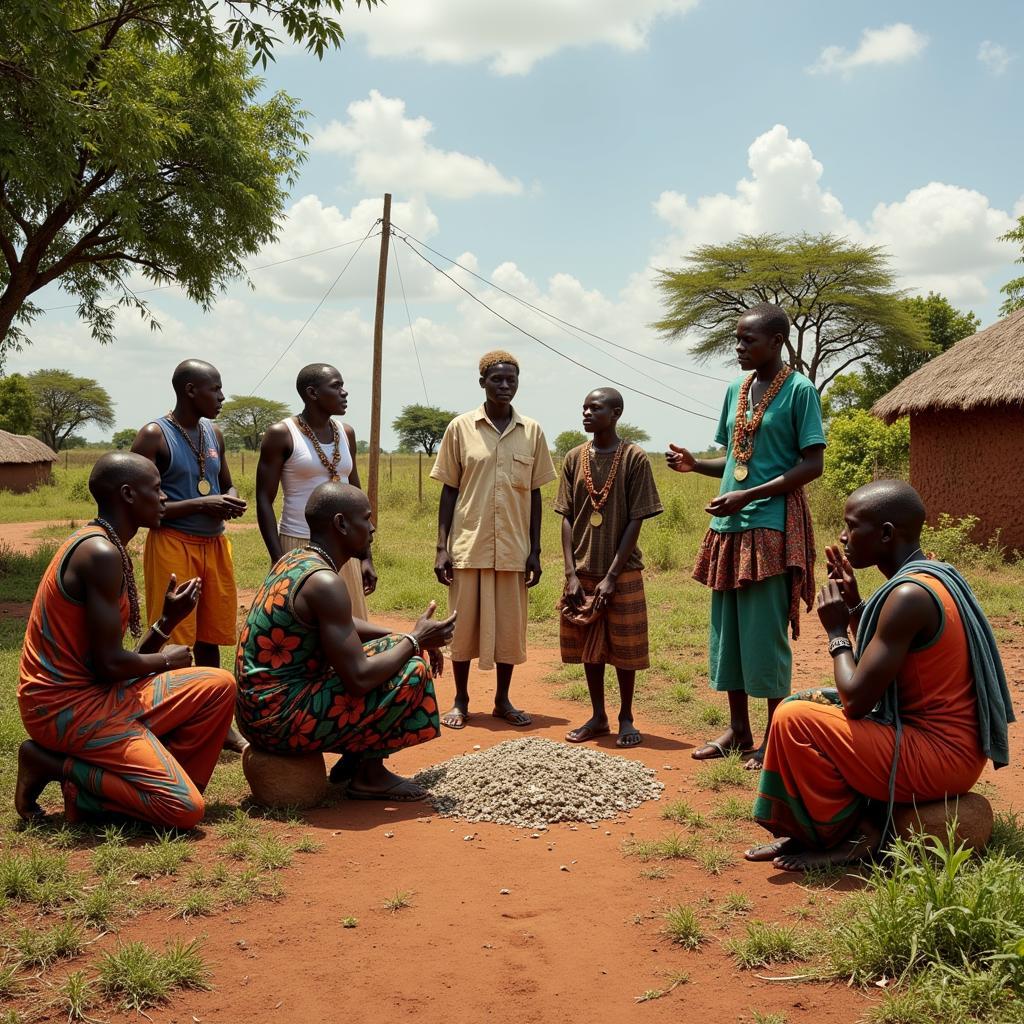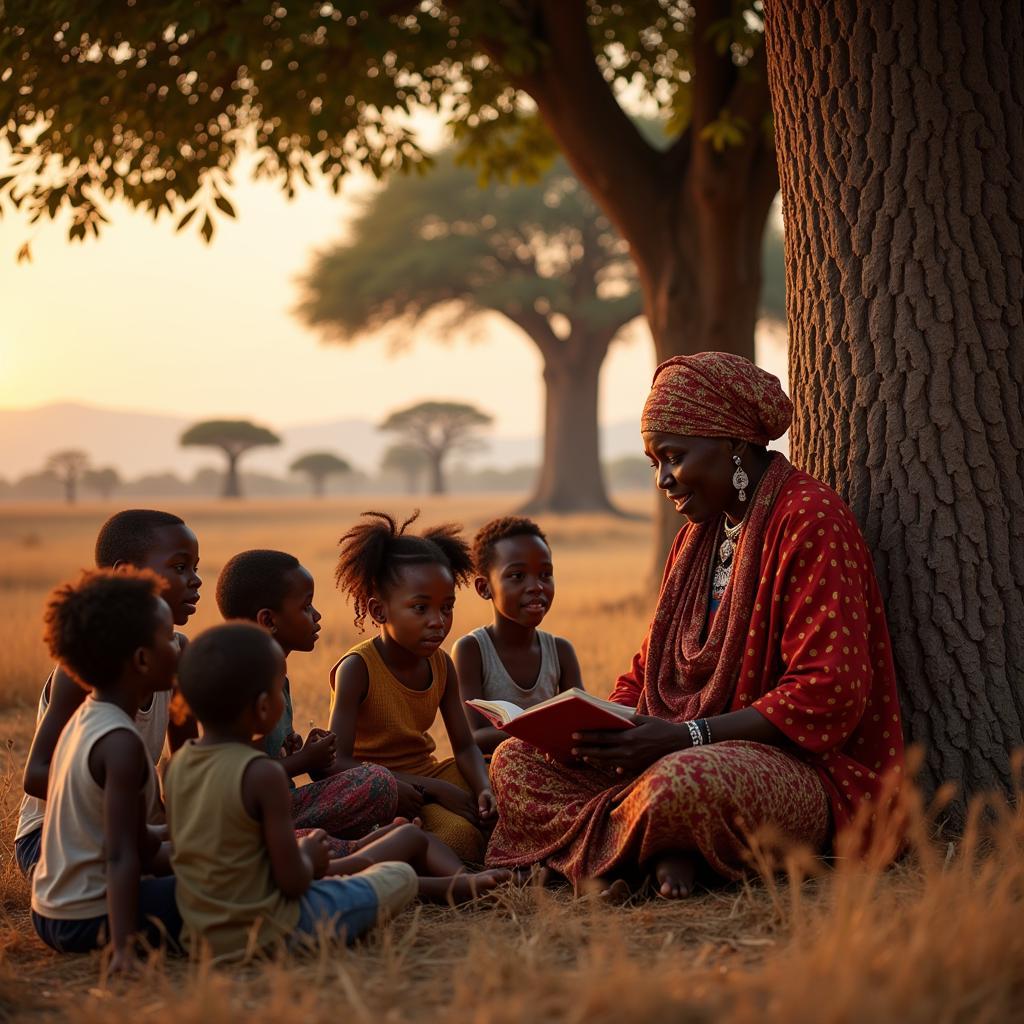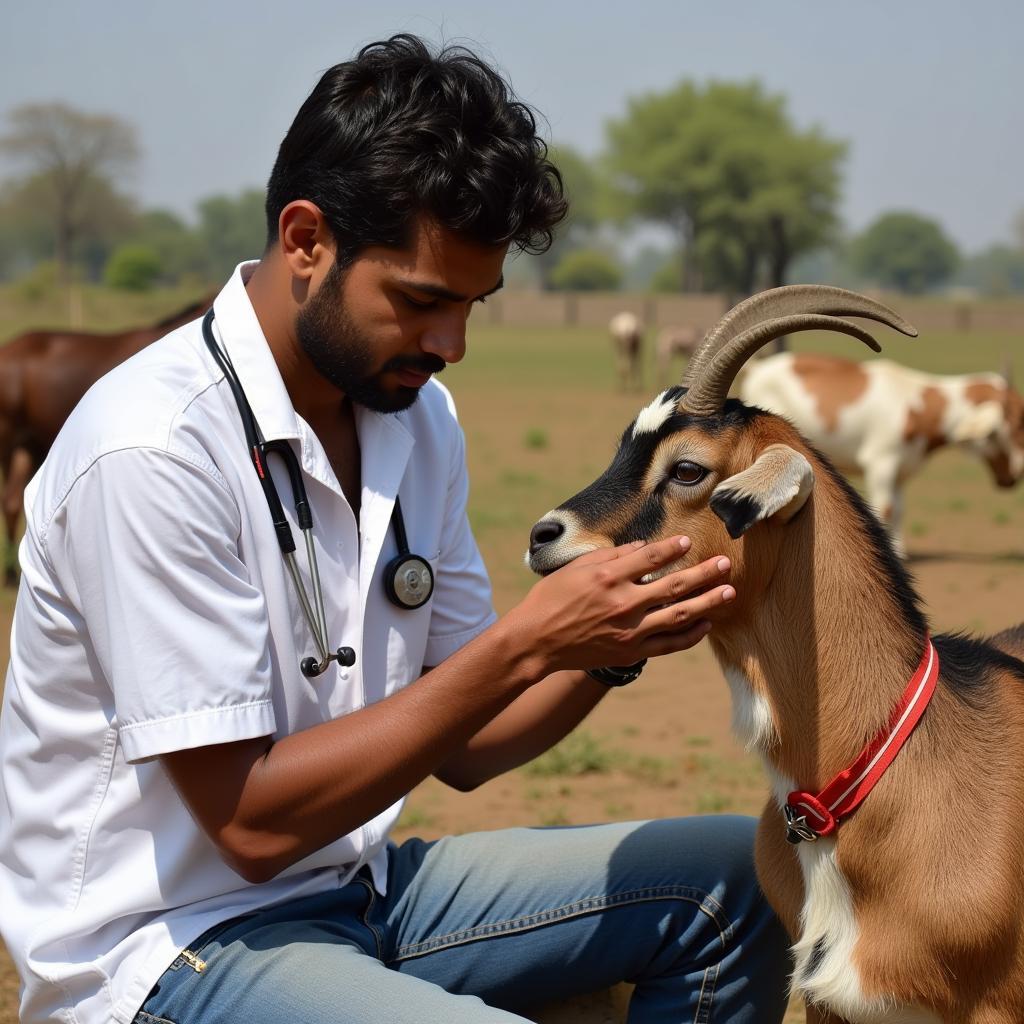Exploring the Complexities of African Land and Sex
African land and sex are deeply intertwined concepts, reflecting the continent’s rich tapestry of cultures, traditions, and social dynamics. From ancient rituals connecting fertility to the earth, to modern challenges surrounding land ownership and sexual health, understanding this complex relationship offers valuable insights into African Life. This article aims to delve into these multifaceted connections, exploring both historical and contemporary perspectives.
Land Ownership and Inheritance: Impacts on Sexual Relationships
Throughout Africa, land ownership often dictates social standing and power dynamics, directly influencing sexual relationships. Traditionally, inheritance systems in many communities favored male heirs, consolidating land ownership within patriarchal structures. This could limit women’s autonomy and influence their choices regarding marriage and sexual partners. For example, in some societies, women’s access to land is dependent on marriage, creating a system where women’s sexual and reproductive lives are closely tied to their economic security. The intersection of land rights and women’s sexual health remains a significant issue, affecting access to resources, education, and healthcare.
In many African cultures, land is not merely a commodity, but a sacred entity, intimately connected to ancestry, identity, and spirituality. This profound connection has shaped cultural practices and beliefs surrounding sex and procreation. Rituals and ceremonies often link fertility to the land, emphasizing the importance of offspring for both family continuity and agricultural prosperity.
 Traditional African Land Ownership Ceremony
Traditional African Land Ownership Ceremony
Modern Challenges: Land Grabbing, Displacement, and Sexual Violence
The modern era has introduced new complexities to the relationship between African land and sex. Issues such as land grabbing, displacement due to conflict or development projects, and the exploitation of natural resources have far-reaching consequences, including increased vulnerability to sexual violence and exploitation. Women and girls are disproportionately affected by these issues, as they may be forced into transactional sex for survival or face increased risk of sexual assault in displacement camps or conflict zones.
Additionally, the HIV/AIDS epidemic has significantly impacted African communities, further complicating the dynamics of sex and relationships. Access to land and resources can influence an individual’s vulnerability to HIV, as economic hardship can increase the likelihood of engaging in risky sexual behaviors.
Shifting Perspectives: Women’s Land Rights and Sexual Health Advocacy
Across Africa, there are inspiring movements advocating for women’s land rights and sexual health. These initiatives aim to empower women, challenge discriminatory practices, and promote access to education and healthcare. By addressing the underlying social and economic factors that contribute to gender inequality, these movements are working to create a more just and equitable future for all Africans. Many organizations are working to raise awareness about the importance of safe sex practices and advocate for increased access to sexual and reproductive health services.
The Role of Education and Awareness
Education plays a crucial role in transforming attitudes and behaviors related to land and sex. Comprehensive sexuality education empowers individuals to make informed choices about their sexual health and relationships. Furthermore, promoting awareness about land rights and gender equality is essential for challenging harmful traditional practices and fostering more equitable social norms.
What are the key challenges facing women’s land ownership in Africa?
Traditional inheritance systems, patriarchal social structures, and lack of legal recognition often hinder women’s access to land.
How does land ownership affect women’s sexual health?
Limited access to land can increase women’s vulnerability to sexual exploitation and limit their ability to access healthcare and education.
Conclusion
The interconnectedness of African land and sex is a complex and multifaceted issue. By understanding the historical and contemporary factors shaping this relationship, we can work towards creating a more just and equitable future for all Africans. Addressing land rights, promoting sexual health, and empowering women are crucial steps towards building a thriving and sustainable Africa.
FAQ
- What are the traditional beliefs surrounding land and fertility in Africa?
- How does land grabbing impact women’s safety and well-being?
- What are some successful initiatives promoting women’s land rights in Africa?
- How can education contribute to changing attitudes about sex and relationships in Africa?
- What are the main challenges in addressing sexual health issues in rural African communities?
- What is the role of government policies in protecting women’s land rights?
- How can international organizations support African communities in addressing these challenges?
Need support? Contact us 24/7: Phone: +255768904061, Email: kaka.mag@gmail.com, or visit us at Mbarali DC Mawindi, Kangaga, Tanzania.



